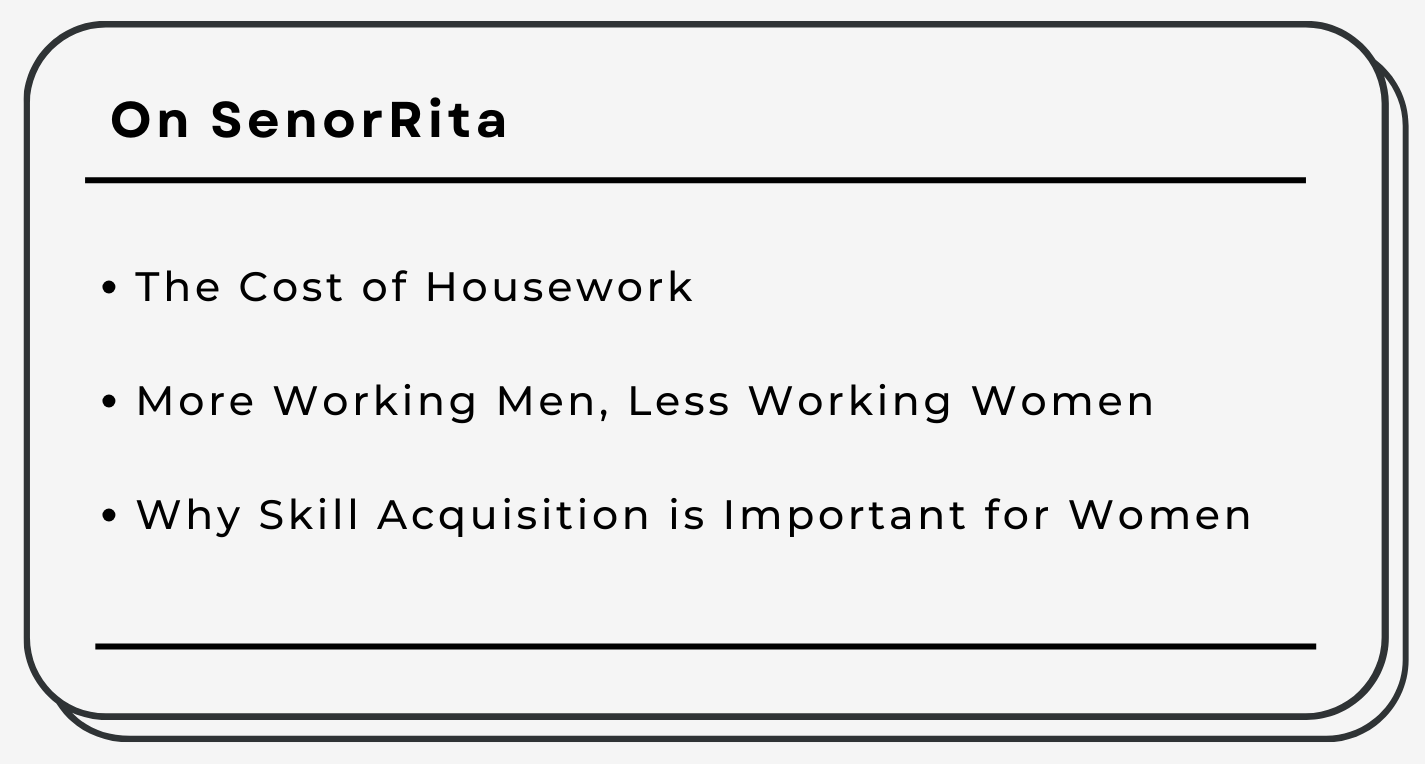Twelve in every 100 women in Nigeria are housewives according to data.
Research shows that out of the working status of women in Nigeria, 11.6% of women are involved in a house-making job compared to other working statuses. This shows that women are now prioritizing housekeeping roles among other professions.
A full housewife is a married woman who works exclusively within the home performing services for her own family.
The primary duty of a full housewife is to relieve other family members from contributing much or any of their time, effort, and attention to child care, food preparation, housecleaning, laundry, grocery shopping, and other chores.
Out of the working categories for women, there are fewer women driven by their careers. There is a low participation of women in the other categories such as the professional, upper-level professional and supervisory positions.
About 4.9 % of women are pursuing their careers at the professional level, 2.1% are pursuing their careers, and 1.7% of women are working at the supervisory level.
All these do not equate to the 11.6% of women in the full housewife duties.
More Working Men, Less Working Women
A study by the Grattan Institute discovered that income gaps between fathers and mothers are due to women reducing paid work to take up more household work.
Mothers often reduce their paid work hours to take on a greater share of caring for the kids and household work. Fathers, on the other hand, typically continue their paid work and only take on some household work and caring responsibilities.
Meanwhile, the cost of running each of the household chores varies if awarded as a contract to firms handling these services.
For instance, the cost of cleaning each of the household chores is between ₦15,000-₦25,000 daily. The Extreme Clean Service offers cleaning services for different house chores between ₦15,000-₦30,000.
The cost of childcare is between ₦300,000-₦750,000 per month and ₦3.6 million-₦9 million yearly.
The cost of cooking a full-day meal with available food items for a family of four (4) costs between ₦900,000-₦1.5 million per month and ₦10.8 million- ₦18 million yearly. When you put this together, you shell out north of ₦16 million a year for these services when you engage a firm.
Even at the low end, live-in maids who perform the tasks of cooking, cleaning and childcare undertaken by most housewives, could be as high as ₦1-3 million a year in many cases.
That is the cost of housework.
Why Skill Acquisition is Important for Women
Women must develop a diverse skill set that goes beyond the fundamental abilities required for managing household responsibilities and excelling in their professional pursuits.
These additional skills encompass a wide range of creative and practical talents such as mastering the art of baking, crafting soaps, creating detergents and toiletries, honing beadwork techniques, mastering the intricacies of weaving, delving into the world of cosmetology, learning the process of making shea butter, crafting unique candles, exploring the realm of decorations, delving into the intricacies of fashion design, and mastering the art of cooking both local and international delicacies.
Both housewives and working women can benefit from acquiring additional skills. These skills can have a significant impact on a woman's financial independence, allowing her to contribute to her family's income.
Furthermore, they enable her to ensure that the household has access to hygienic and well-prepared food, prepared with utmost care and consideration for the family's well-being.
In conclusion, considering the choice between a stay-at-home wife and a wife with a career, it's important to recognize the significant roles both play in a family dynamic. The decision is complex, as both options have their own set of advantages and challenges.
However, it's crucial to acknowledge the possibility of unexpected events, such as the husband's passing, and the impact it could have on the family. In such a scenario, a wife with a career would be better positioned to provide ongoing support and stability for the family. This consideration highlights the importance of carefully weighing the potential long-term implications of this decision.
Thanks for reading this edition of SenorRita. It was written by Kafilat Taiwo and edited by Joachim MacEbong.






